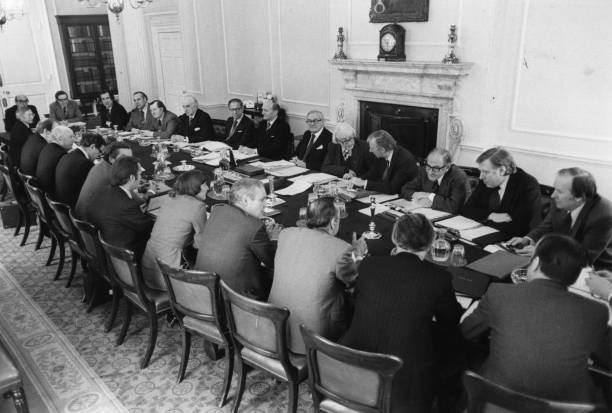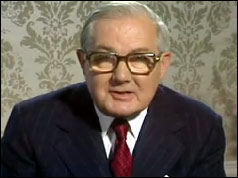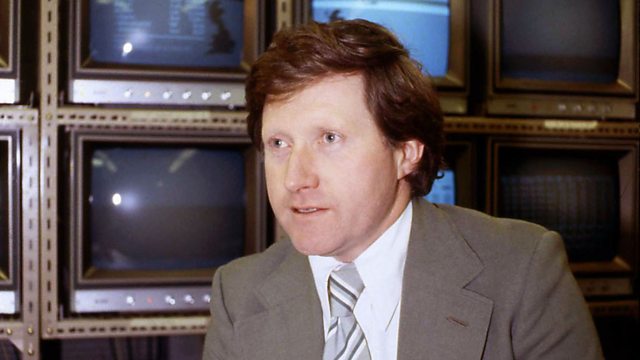
6 September 1978
10 Downing Street

--------------------------------------------------------------------------------------------------------------------
The choice of the date of the General Election in Britain is the Prime Minister's, and their's alone. He may seek advice, listen to advisers and pore over data, but the final judgement rests with him.
For James Callaghan, Prime Minister for barely two years since Harold Wilson's shock resignation in 1976, the decision was a hugely important one - and one laden with the possibility for catastrophe. The Government had been limping on as a minority since it's tiny majority of 3, won at the October 1974 election, had evaporated in March 1977. A deal struck with the Liberals had allowed the Government to get it's measures through and avoid a damaging defeat was reaching it's conclusion on 7 September 1978. The two choices that faced him were either to go on for another 13 months hoping to avoid defeat, or to call an election in the hope of winning back a majority.
The parliamentary party was exhausted from months of late-night votes, shabby deals and guerrilla tactics from the opposition. The trade unions were becoming increasingly hostile and adopting a combative mood, especially after Callaghan and his Chancellor, Denis Healey, had voiced support for a 5% pay settlement in the public and private sectors.
With discontent brewing and the Labour government hanging by a thread, Callaghan's judgement over the date of the General Election would be absolutely crucial to his chances of winning. There was a risk that cutting and running would result in Labour losing power, but waiting might see the political environment turn even worse, heralding in a Margaret Thatcher premiership. Callaghan recognised that the industrial situation might have destroyed Labour's support amongst trade unionists. A series of strikes might have cost it support with the country. Decisive action was needed.
Over the summer of 1978, James Callaghan made up his mind - he would go an election in October. It was a decision that would prove to be extremely wise. Though the Leader of the House of Commons, Michael Foot, and the Chief Whip, Michael Cocks, had urged the Prime Minister to delay the election until 1979, using Rhodesia, the improving economic outlook and the need for an up-to-date electoral register as arguments, the decision was made.
Callaghan maintained his position despite caution being urged by other figures, including David Owen, and the party's pollster, Bob Worcester - who warned that the party could lose an election in 1978. Callaghan himself, with his own amateur psephology skills, recognised the dangers an early election would bring. But, he was swayed by the economic and psephological data pointing in the other direction,
Denis Healey had forecast 3% growth for the rest of the year, with inflation at 8% and incomes rising by 15%. The budget, which had been in deficit in the second quarter of 1977, posted a £480 million surplus in the third and a £350 million surplus in the fourth. By the time 1978 arrived, revenues from North Sea oil helped Britain's position even more, allowing the Government to repay the final instalments of the IMF loan.
Callaghan's senior policy adviser, Bernard Donoughue, prepared analysis of polling figures and political factors, which pointed towards a positive position for Labour come the autumn. On the eve of the TUC Congress, senior union figures joined the Prime Minister at his farm to urge an October election. They left convinced their advice had been heeded.
The TUC Congress in Brighton saw Callaghan deliver a positive, upbeat speech on 5 September. The mood was more like that of an election rally. His performance was interpreted as a signal to the Tories that an election was imminent.
On 6 September, Callaghan privately informed the Palace in writing of his decision. An opinion piece in the Guardian the following warned that if Callaghan failed to call an election soon he would face the possibility of defeats in the Commons, and the possibility of a no-confidence vote followed by an unplanned election followed by the stalling and reversal of Labour's hard-earned recovery in the polls.
--------------------------------------------------------------------------------------------------------------------

7 September 1978
Cabinet Room, 10 Downing Street
His sleep the night before hadn't been easy. The Prime Minister was faced with the conflicting emotions of nervousness and excitement. He knew this is what he wanted to do, but was it the right decision? It was too late for him to back out now. On the other hand, he was faced with the prospect of being able to win a majority and mould Britain in the way he wanted to going into the 1980s.
7 September 1978
Cabinet Room, 10 Downing Street
As the Cabinet sat down for the day's meeting, news that an election was about to be called remained between the Palace, Callaghan, his wife and his closest advisers.
After the meeting, dominated by discussion on the situation in Rhodesia and the Bingham Inquiry, the Prime Minister told the Cabinet what most of them had expected: a General Election was being called.
Denis Healey recalled in his memoir, The Time of My Life, 'at Cabinet Jim told us that months of frustrating compromise and trench warfare were over. The news that an election was in he offing made us put our differences to one side and concentrate on winning the election.'
Tony Benn recalled in Diaries 'at last Jim has made a decison. We were handed it by Jim like some king addressing him court. But Labour's victory in October will give the left a real chance to fight for a socialist policies.'



